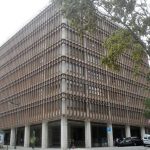Portugal facing stagflation says economist
Portugal’s stalwart economist Teodora Cardoso has warned that the country is, like the rest of the world, facing stagflation in the short term but says price controls are not the answer.
The former president of the Council of Public Finances who once thought of becoming a nun before she decided her calling was for numbers, said it was inevitable that the world economy would suffer a stagflation.
Stagflation is characterised by slow economic growth and relatively high unemployment—or economic stagnation—which is at the same time accompanied by rising prices (i.e., inflation).
Portugal had been on target for growth of 5.5% for 2022 from estimates given in February before Russia’s invasion of Ukraine. On March 30 unemployment was 5.8%.
Teodora Cardoso thinks that stagflation in the world economy is “not only just probable, but certain in the immediate term”.
In a no-holds barred interview with ECO on the economic policies adopted by the government in Portugal, specifically the António Costa governments, the ex-president of the Council of Finances advises against price controls and instead calls for measures that protect the most vulnerable while criticising the rhetoric of “balanced books”.
“A period of stagflation in the world economy (characterised by) weak economic growth and an increase in inflation is not just probable, but certain for the immediate future”, said the economist, pointing to the “lack of and corresponding increase in the cost of energy, cereals, and raw materials” made it an almost certainty.
“The cause is the war, the pandemic and expansionist macroeconomic policies” she said, suggesting that budgetary and monetary policies were beyond what was necessary in the advanced economies.
“We have to recognise that we are not facing a crisis in demand, but rather supply, and it is on this that the ability to maintain the social policies which we all desire, depends”, she said.
The economist also expressed the hope that policy agents would spend European (‘bazooka’) financing defined in Portugal’s Recovery and Resilience Plan and the money from the EC’s Pluriannual Financial Framework 2021-2027 “efficiently” and in a way to “ensure corruption cases are avoided”.










